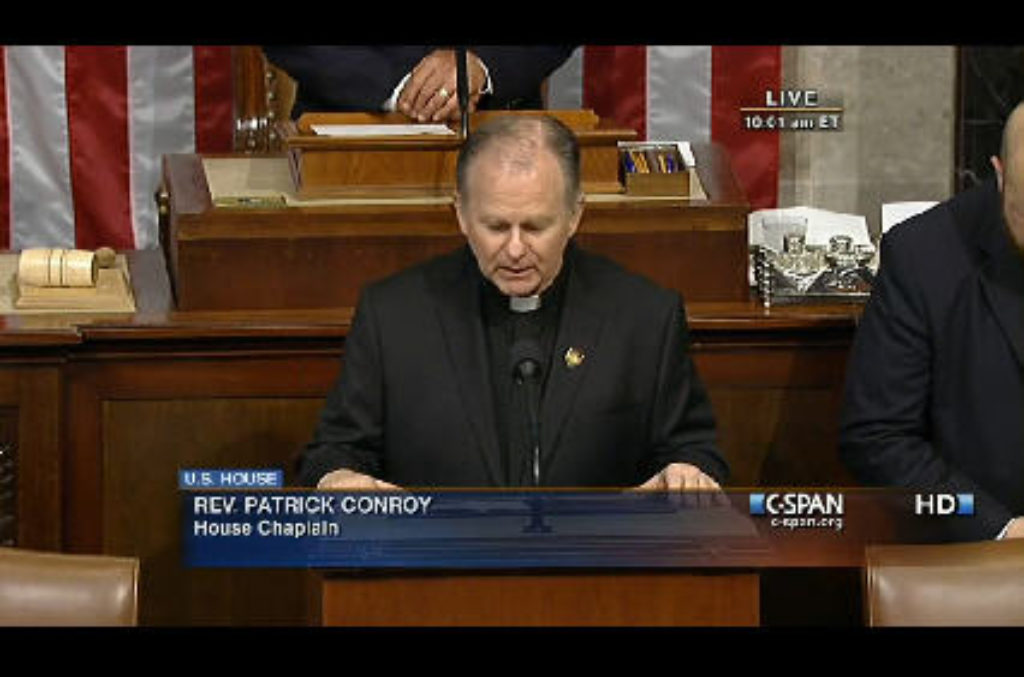Patrick J. Conroy’s forced resignation as chaplain of the House of Representatives — attributed to House Speaker Paul D. Ryan (R-Wis.) — has opened up a new round of partisan and religious divisions in Congress. But if there’s any upside, it’s this: We now see clearly why it’s time to do away with taxpayer-funded, government-supported congressional chaplains.
The controversy surrounding Conroy’s departure illustrates how chaplains in Congress inevitably sully religion with politics. Some believe that Ryan fired Conroy because Ryan perceived him to have delivered a prayer that was critical of the Republican tax bill. (Ryan has denied this.) Others believe that Conroy was secretly aligned with the Democrats and find proof in House Minority Leader Nancy Pelosi’s disagreement with Ryan’s decision to fire Conroy.
The partisan battle over the chaplaincy escalated when Democratic Rep. Joseph Crowley (N.Y.) asked for an investigation into the reason for Conroy’s termination, but Republicans voted it down. Next, in the search for a new chaplain, Republican Rep. Mark Walker (N.C.), a Baptist minister who was on the hiring committee for the new chaplain, announced his preference for a chaplain with children, who he believes could better relate to the experience of most members. Some perceived Walker’s support for this qualification to be a thinly veiled effort to obtain an evangelical Christian chaplain to please one segment of the Republican base.
The saga illustrates a problem intrinsic to the House chaplain position: As is routinely the case when religion and government mix, religion takes a hit.
The congressional chaplaincy, like all governmental endorsements of religion, is exclusionary. Taxpayer-funded chaplains, who typically represent and often favor the majority faith, are a painful reminder that some people — often non-Christians and nonbelievers — aren’t yet fully included in our American experiment.
Despite our nation’s exploding pluralism, every congressional chaplain since 1774 has been a male Christian. Yet in modern America, the ways of relating to God are many and varied, and growing numbers of Americans choose not to relate to a deity at all. In this atmosphere, a one-size-fits-all prayer delivered by a taxpayer-funded religious leader isn’t just an anachronism. It’s an impossibility. In today’s religiously diverse America, government-sponsored, taxpayer-funded chaplains don’t unify; they often divide and perpetuate (one version of) Christian dominance in American religious life.
Read the full story at The Washington Post


